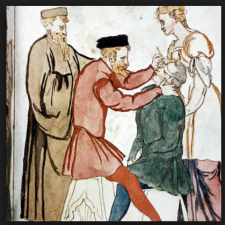 Everyone knows that Britain is in a different time zone from the US. Right now, that difference is supposed to be five hours, but someone obviously forgot to tell the country's National Health Service (NHS), because they are more like three years behind us when it comes to treating gonorrhea aka, "the clap."
Everyone knows that Britain is in a different time zone from the US. Right now, that difference is supposed to be five hours, but someone obviously forgot to tell the country's National Health Service (NHS), because they are more like three years behind us when it comes to treating gonorrhea aka, "the clap."
This became evident recently when BBC News reported that Dame Sally Davies, Britain's chief medical officer, had written to pharmacies and GPs warning them to use correct medical practices when treating this infection, because we are down to one drug, ceftriaxone, that is still effective against the infection, which is caused by the bacterium Neisseria gonorrhoeae. Just in time.
As I wrote in the New York Post in 2012, ceftriaxone must now be given by injection only (usually combined with an oral course of Zithromax) to ensure that the infected patient gets the entire dose of the antibiotic. This is important because stopping antibiotics partway through therapy is one of many ways of promoting bacterial resistance. Certain strains of gonorrhea are already resistant to ceftriaxone, so administering the drug properly can only slow down the resistance not stop it, but administering it improperly is simply foolish. Once ceftriaxone stops working, it will be difficult, or even impossible to treat gonorrhea a very common sexually transmitted infection that was once easily curable by using simple antibiotics, such as penicillin or tetracycline.
(Zithromax serves two purposes: one is to "help" the ceftriaxone, especially if there are strains present that are resistant to it. The other is to treat chlamydia infection, which is frequently found in people who have gonorrhea.)
Dame Davies sure needed to speak up, perhaps sooner, because the treatment of gonorrhea in the UK has been pathetic. For example, some doctors were still prescribing Cipro, even though it stopped working years ago, while others were using ceftriaxone pills, or Zithromax alone both no no's.
As if more bad news is needed, the number of cases of gonorrhea and other STDs is steeply rising. Paradoxically, this is because AIDS drugs are so good that when used properly, transmission can be cut to near zero, which allows gay men to forgo condoms, which, of course, facilitates the spread of other STDs. What a mess.
Perhaps Britain will set Big Ben ahead by three years and catch up to its "more accurate" little brother in Grand Central Station. Time's a wastin.



